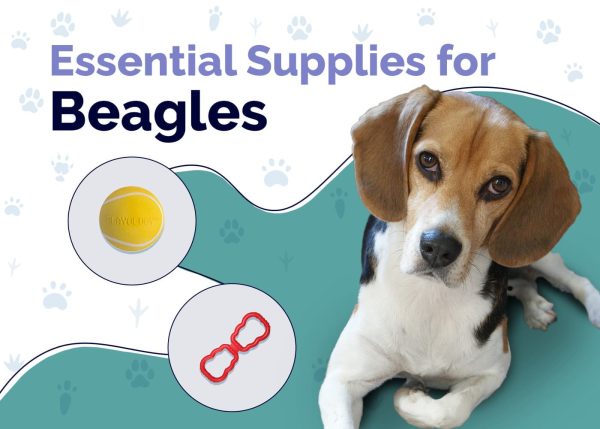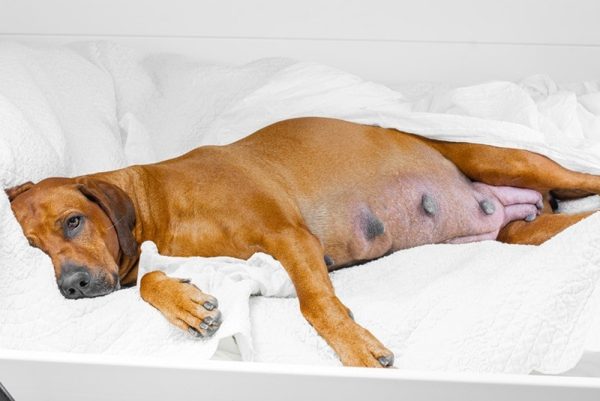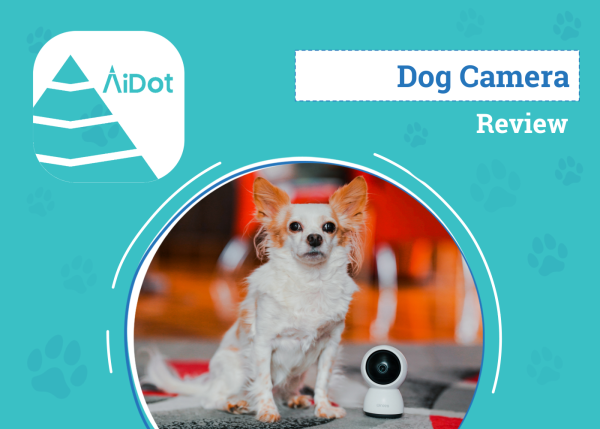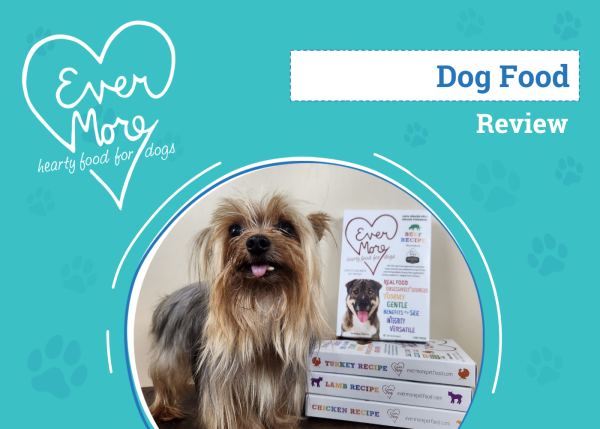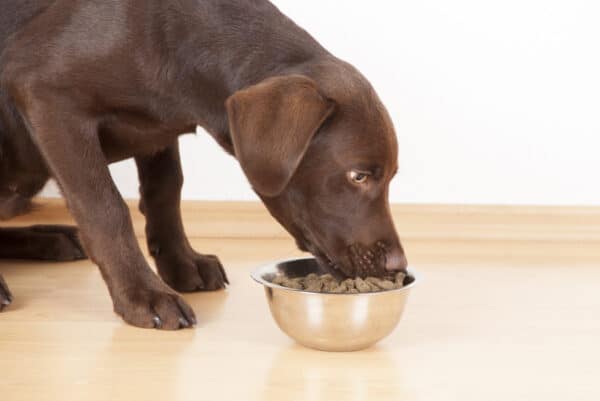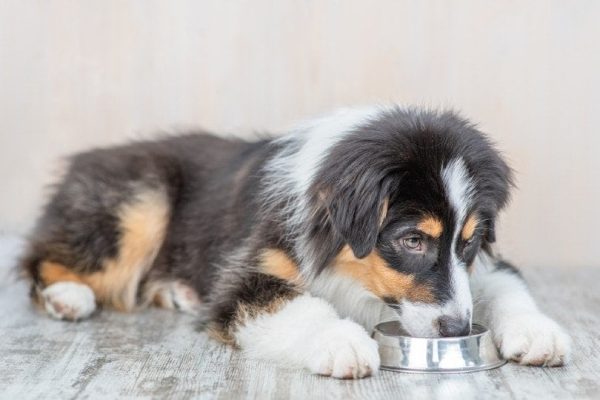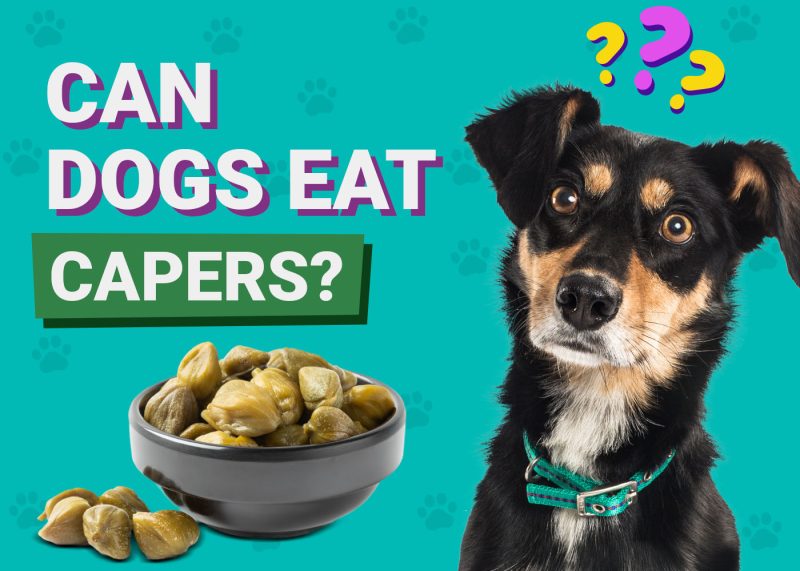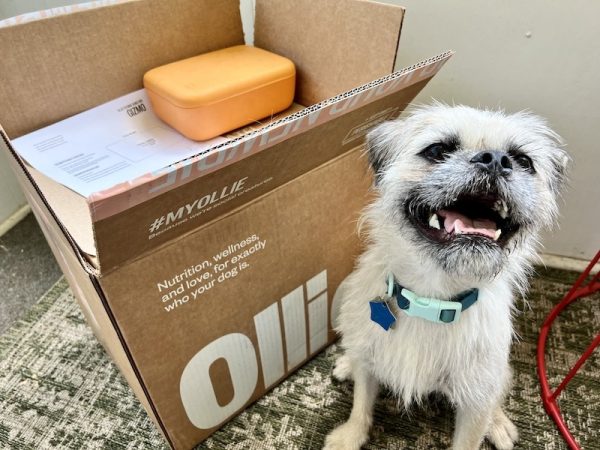In this article
View 4 More +If your dog has ever expressed interest in sharing your bowl of ice cream or glass of milk, you know how tough it can be to say “no” to them. But is sharing dairy products with your dog safe? Unfortunately, there is no hard and fast answer to this question.
Dogs, like many people, can be lactose intolerant, making dairy products their arch-nemesis. But does that mean your dog shouldn’t have a taste of cheese off your charcuterie board? Read on to learn more about the relationship between dogs and dairy products.

Can My Dog Have Dairy?
The answer to this question isn’t black or white. The truth is that some dogs can have dairy, while others simply cannot tolerate it.
Several dairy products are safe for dogs to consume in small amounts. But remember, dairy isn’t a natural component of a dog’s diet. Introducing any new food can wreak havoc on your pup’s digestive system, so it’s always best to test the waters very slowly.
Some dogs may be lactose intolerant as they cannot digest the sugars in dairy products. Unfortunately, it’s impossible to know if your dog has a dairy sensitivity without first offering it dairy in its diet. The only way to know if your dog is lactose intolerant is to remove all dairy products from its diet if you notice it developing gastrointestinal issues soon after eating dairy.
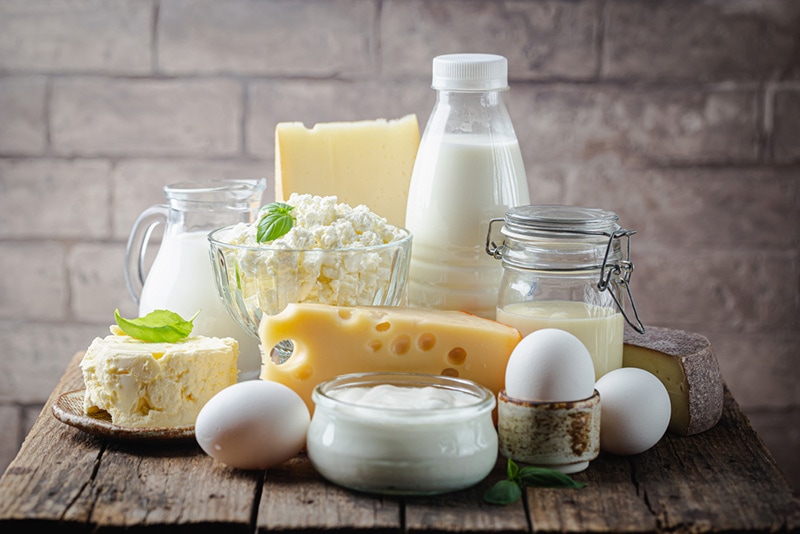
What Kinds of Dairy Should I Try Feeding My Dog?
If you’re interested in testing the waters to see if your pup can tolerate dairy, there’s a right and a wrong way to do it.
First, you’ll want to start with the tiniest amount to see if your pup starts exhibiting signs of gastrointestinal upset. Next, we recommend starting with something lower in lactose, such as cheddar or cottage cheese. If your dog has no adverse reaction to such foods, you can try another dairy product.
The lower the lactose content of a dairy product, the better chances your pup will tolerate it well without digestive upset.
Other foods you might offer your dog once you know it can tolerate dairy include:
- Mozzarella cheese
- Swiss cheese
- Parmesan cheese
- Plain, xylitol-free yogurt
While some dairy sources, like cheese, have healthy nutrients like protein and calcium, many dairy products are high in fat and calories. So, if you’re offering your pup the foods mentioned above, they should be used as an occasional treat to prevent weight gain.
What Dairy Should I Avoid?
There are several dairy products you should never offer your dog.
These include foods such as:
- Dairy products containing xylitol (e.g., ice cream)
- Blue-veined cheeses (e.g., gorgonzola, Roquefort, etc.)
- Brie cheese
- Chocolate milk
- Artificially sweetened yogurt
- Cheeses contain added ingredients like onions or garlic
If you need to speak with a vet but can't get to one, head over to PangoVet. It's our online service where you can talk to a vet online and get the advice you need for your pet — all at an affordable price!
What About Milk?
Milk contains lactose, a sugar that requires an enzyme known as lactase to be digested. Most healthy puppies have this enzyme in abundance, as it’s necessary to break down their mother’s milk when nursing.
Once puppies have been weaned, they’ll naturally begin producing less lactase. Unfortunately, this is when some dogs will become lactose intolerant.
Dogs without the lactase enzyme may have a hard time digesting milk. The lactose in milk will travel through their gastrointestinal tracts and go into their colons without being properly digested. The undigested sugar draws water into the colon, which may lead to diarrhea, flatulence, and discomfort.
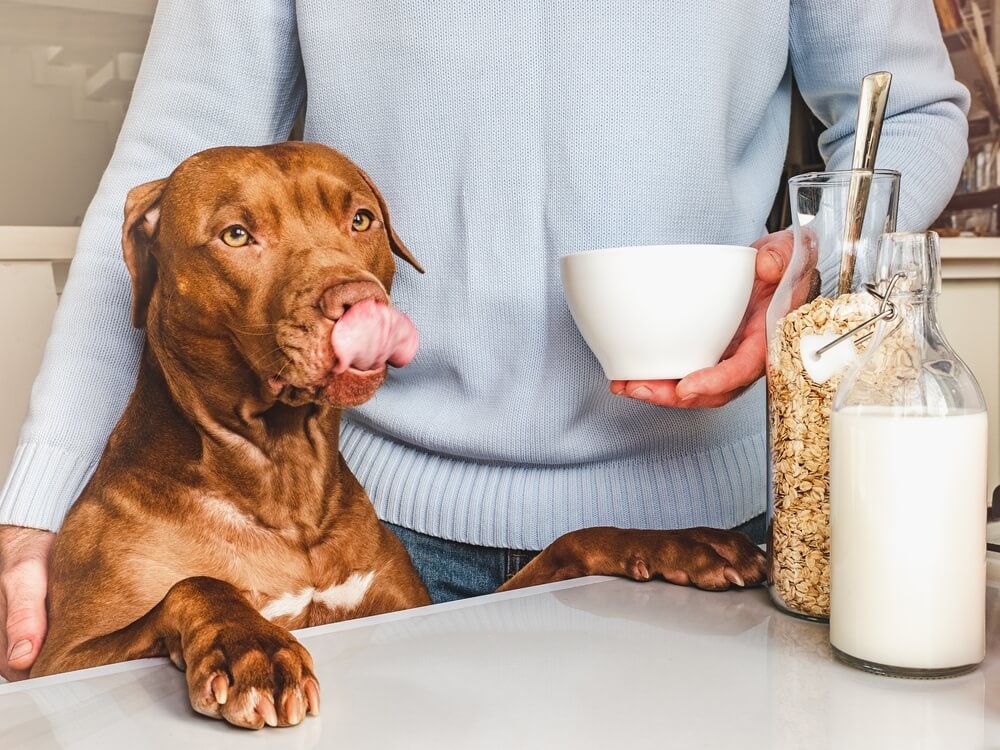
What Are the Symptoms of Lactose Intolerance in Dogs?
Dogs that are lactose intolerant will exhibit several signs of their condition. While these side effects are uncomfortable, they’re generally not life-threatening unless they continue for long periods without treatment.
Some signs will start within minutes of ingesting a dairy product, so if you have the slightest inkling that your pup might be lactose intolerant, keep a close eye on it after it has eaten a dairy product.
Signs to be on the lookout for include:
- Abdominal pain
- Bloating
- Diarrhea
- Flatulence
- Excessive thirst
- Vomiting
- Nausea
Can Dogs Be Allergic to Dairy?
Yes, dogs can have dairy allergies.
We feel it’s important to note that lactose intolerance and dairy allergies are separate entities.
Lactose intolerance isn’t considered an allergy as it doesn’t involve the immune system. It is simply the inability of a being to digest lactose properly.
A dairy allergy occurs when the body’s immune system has a reaction to dairy proteins.
According to VCA Animal Hospitals, dairy allergies are among dogs’ most common food allergens. This allergy will manifest itself in the form of rashes and itchy skin. Other signs include:
- Red or dry skin
- Hot spots
- Bald spots
- Skin or ear infections
- Gastrointestinal upset
If you need to speak with a vet but can't get to one, head over to PangoVet. It's our online service where you can talk to a vet online and get the advice you need for your pet — all at an affordable price!

Final Thoughts
We wish we could give you a hard and fast answer about dogs and dairy, but the truth is that every dog will be different. If you must offer your pet dairy, giving a small taste of a low-lactose food is best to gauge your dog’s reaction. Once you know your dog can digest dairy properly, you can branch out and try other foods. Dairy is not the best food for dogs, so use it only as an occasional treat.
If you want to play it safe, we recommend sticking with treats made specifically with dogs in mind.
See also:
- Why Are My Cat’s Paws Peeling? 7 Vet-Reviewed Reasons
- Can Ferrets Use Cat Litter? Vet Approved Types & Tips
Featured Image Credit: ff-photo, Shutterstock



